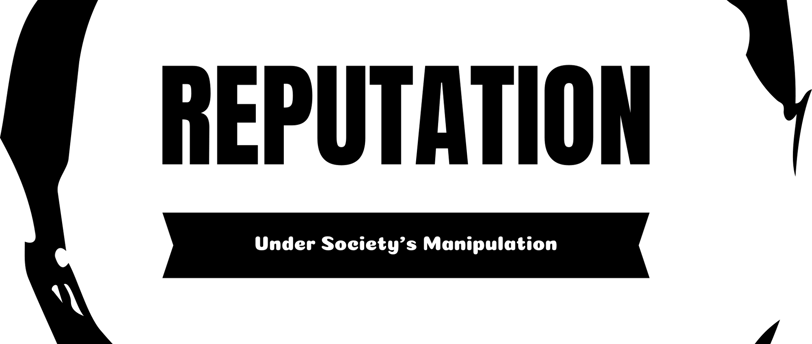
Manipulation of Reputation 評判の操作
How Haters can easily destroy someone's reputation thru help of community




In modern society, an individual's reputation and character can quickly be impacted through the
propagation of information that is not entirely truthful or that skews reality. Unverified claims and
statements that are shared digitally across multiple forums have the power to profoundly shape
how other people view and judge someone. This research paper seeks to investigate the dynamics
at play when misinformation is distributed, with specific focus given to analyzing potential variances
in behaviors between gender identities.
The rise of social media and online connectivity has enabled falsehoods to spread at an unprecedented rate, potentially reaching and influencing vast audiences. Within moments, unsupported allegations have the ability to gain widespread traction, circulation, and acceptance as fact. Once introduced into public discourse, misinformation can be difficult to correct even when its inaccuracies are exposed. This new information ecosystem warrants a deeper examination of not only how misinformation spreads, but why certain demographics may be more or less likely to perpetuate unverified claims.
By exploring gender as a variable and comparing tendencies between identities, this paper aims to develop a more nuanced understanding of the psychological, social and cultural factors involved. It will consider possible reasons for any observed differences in the propensity to disseminate misinformation, as well as the potential downstream impacts. The goal is to gain insights that could inform the design of interventions to build resistance to false or misleading narratives, thereby strengthening the integrity and trustworthiness of public information across all communities.
A review of relevant academic literature will first be provided to establish the current body of research and identify gaps. Original research will then be described involving surveys and analysis of real-world examples. Results will be discussed through the lens of applicable theories to offer perspective. Finally, conclusions will be drawn regarding the dynamics of misinformation spread through a gendered lens, along with recommendations for future work.
It is prudent to acknowledge that historically, certain societal expectations may have associated women more closely with gossip and the propagation of rumors. While not all individuals engage in such behaviors, cultural norms have to some degree perpetuated this stereotype over time. A variety of internal and external factors could influence these tendencies, though assigning blame serves little constructive purpose.
The goal of this blog article is to analyze the gender dynamics related to the dissemination and perpetuation of inaccurate information, with the objective of cultivating greater understanding. Specifically, it will discuss three key aspects of this process: initiation, escalation, and disengagement.
While rumors can originate from any individual regardless of gender, historical tendencies suggest certain social and psychological factors may have disproportionately influenced their propagation among women. Traditionally, the stereotype of the rumor spreader has largely been borne by females.
This generalization, though not absolutely accurate, finds context in the social roles and expectations that have long shaped gender dynamics. In many societies, women were traditionally discouraged from directly confronting issues or being perceived as the source of problems, as such behaviors were viewed as unfeminine by cultural standards of the time. As a result, some women may have been more inclined to address matters through indirect means like spreading rumors.
Of course, these were broad generalizations that did not apply to every individual. Characterizing entire gender groups in this way risks promoting bias and overlooking diversity of personal experiences. While social patterns provide historical perspective, one's character is best assessed based on individual merits and actions rather than presumed classifications.
Moving forward, an equitable society requires moving past overgeneralized stereotypes to embrace diversity and complexity. Each person deserves to be viewed as a multidimensional individual rather than a representative of an assumed group. Though certain tendencies may have been common among some communities in the past, much has changed. Today, characterizing or judging anyone based solely on gender promotes neither fairness nor understanding between all people.
Once introduced, rumors are often amplified as they spread further through social networks and communities. As rumors propagate from person to person, the initial claims made can take on a life of their own, growing in magnitude or variation with each retelling. At this fragile stage, rigid societal expectations of masculinity and the human desire for influence or status among peers may motivate some men to actively spread rumors further without subjecting the claims to high levels of critical scrutiny. By propagating rumors in an apparent show of confidence or leadership, some individuals may seek to leverage rumors to gain influence or the attention of others. However, this behavior of escalating rumors prior to full verification of facts can exacerbate the negative impact of the initial claims. As research has shown, within many social groups the voices and opinions of men are still frequently afforded disproportionate weight and credibility compared to women. Therefore, as rumors spread, the amplification of claims by some men serves to increase the perceived legitimacy and seriousness of the issues at hand, whether the claims are fully supported by facts or not. This can further damage reputations and foster increased division, when a more measured and fact-based approach may have curtailed the negative effects of rumors more effectively.
As criticism increases, some women tend to decrease their involvement. This likely stems from multiple justifiable motivations, including a growing awareness of potential harm. It underscores the intricacy of human behavior within social systems. As criticism escalates, women tend to withdraw from actively spreading rumors. This disengagement can be attributed to several factors, such as fear of retaliation, guilt, or empathy toward the targeted individual. Additionally, women may recognize the potential harm caused by rumors and opt to discontinue perpetuating them. This change in behavior underscores the intricacy of gender dynamics and the fluidity of individual choices within societal expectations.
The manipulation of reputation through inaccurate or misleading information can seriously harm individuals and society. While broad trends may provide some context, individual choices and circumstances vary significantly. By cultivating a nuanced understanding of human dynamics without accusation or assumption, we can make progress toward a culture defined by empathy, truth and care for all people.
The manipulation of reputation has unfortunately become a common occurrence in today's digital m world. With the rise of online platforms and social media, it is increasingly easy for individuals or groups to distort public perception through covert, deceptive or unverified means. Whether it be spreading misinformation disguised as legitimate news, posting defamatory claims without factual basis, or artificially inflating one's own profile through inauthentic reviews or endorsements, there are now many avenues for manipulating how people are viewed by their networks and communities. While reputation management and public relations have always factored into human affairs, new technologies have empowered once-marginal behaviors to take place on a much larger scale.
For individuals or businesses targeted by such reputation manipulation efforts, the consequences can be serious and long-lasting. Loss of trust, damage to credibility, and diminished opportunities are potential outcomes of having one's reputation undermined by circulated lies or inaccuracies. It remains a challenge for society to effectively identify and mitigate these harmful activities while preserving principles of free expression. Overall, cultivating shared awareness, media literacy and critical thinking are likely the best defenses against those seeking to distort reality for their own agenda at the cost of others' reputations.
Interpersonal dynamics can vary significantly based on cultural and situational factors. While rumors have long posed challenges, any claims require verification and context before drawing conclusions. Blanket generalizations often oversimplify human psychology and social behaviors, as relationships are complex and individuals differ widely. In modern times, with greater emphasis on fairness and understanding different viewpoints, unjust accusations against anyone's reputation tend to do more harm than good. Open communication, acknowledging diverse perspectives, and focusing on facts rather than character attacks can help address issues constructively.









